Behind the Scenes of "The Eternal Space," A Play About Penn Station's Demolition
This Thanksgiving, our Chief Experience Officer reflects on his gratitude for the play that changed his life!


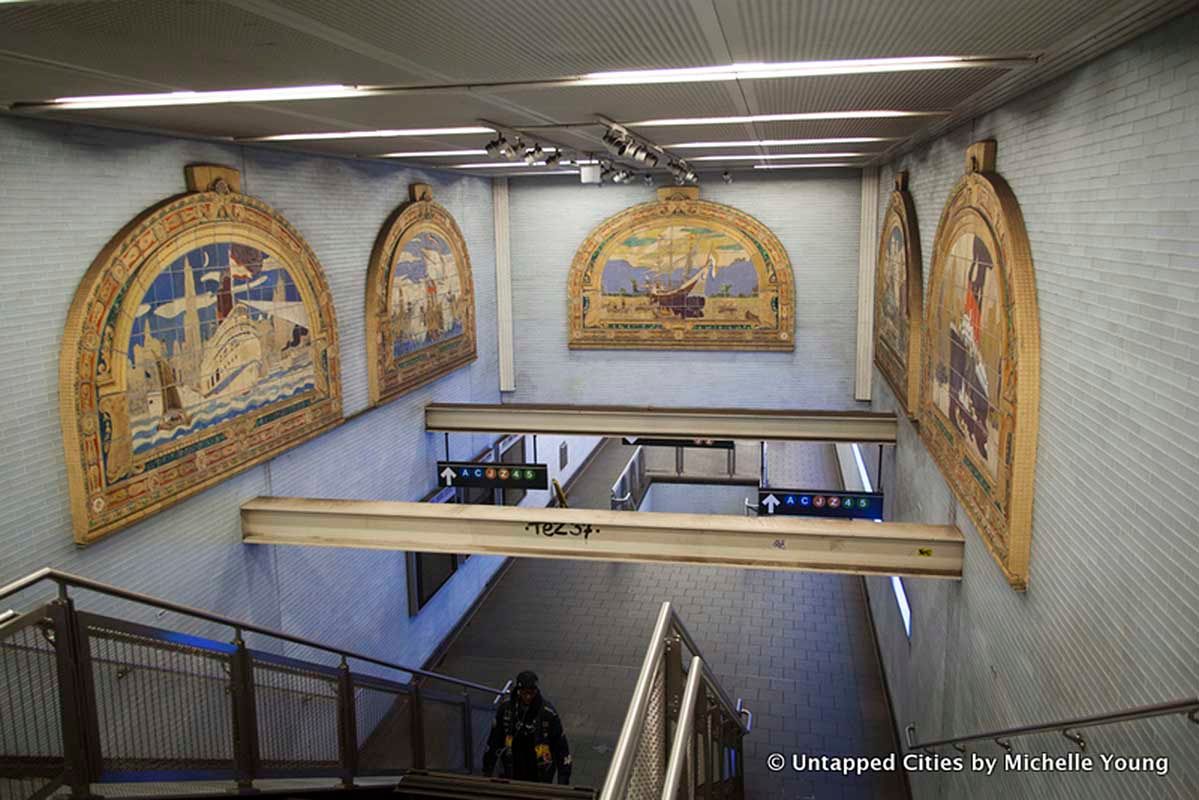
As riders of the New York City City, we’re all familiar with the rats and supposed mole-people, the trash and mold, and have come to ignore–or accept–the many unpleasantries of the NYC subway. What we often forget is that the MTA had originally planned for a ride on the subway to be a luxurious experience, as evidenced by the glorious (and decommissioned) City Hall subway station. By combining art and technology, New Yorkers back in 1904 had high hopes for their new underground.
The original Interborough Rapid Transit Company pulled in artists to create civic works specifically to enhance the subway experience. At the time of the international Arts and Crafts Movement, architects and artists designed ceramic ornament for subway signage. The signs not only announced the name of the stop, but planners also hoped that color, design elements, and eventually illustrations would be recognizable by non-English speakers so that they could orient themselves. Most of the tile designs were done by Heins & LaFarge (1901–1907) and Squire Vickers (1906–1942).
There are constantly additions being made by artists, local schools, and others, but we’re sharing with you some of our favorite original Arts and Crafts/Beaux Arts-style ceramics from around when the subway first opened in 1904. For more on subway art, we’re also hosting our first NYC Subway Art walking tour this weekend, May 13th. Join us for the event:
Behind-the-Scenes Tour of NYC Subway Art
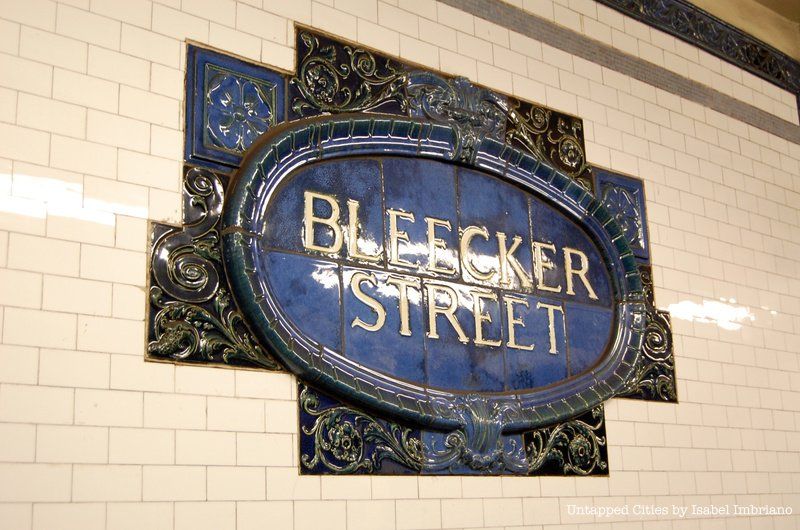
You’d be sad to miss these cobalt blue faience tiles ornate with scrollwork and paterae at the ultra-modern Bleecker Street station.
Catch these impressive terra-cotta reliefs at the Brooklyn Borough Hall station on the R train.
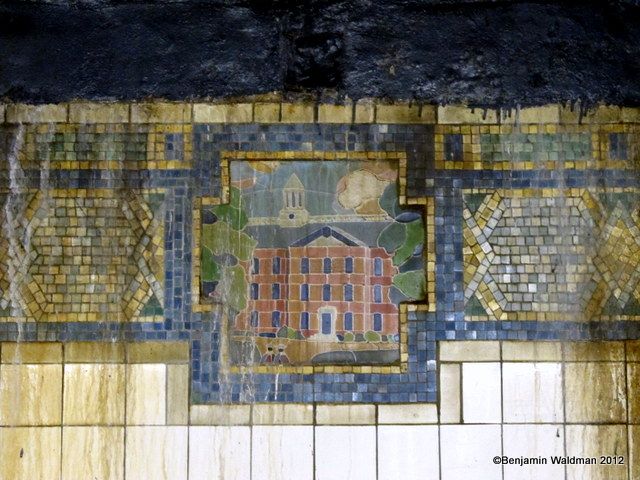
Though obscured somewhat behind layers of grime, the Chambers Street tiles show King’s College, the forerunner to Columbia University which was located nearby. The mosaic was designed by the architect Squire J. Vickers, successor to the team of Heins & LaFarge.
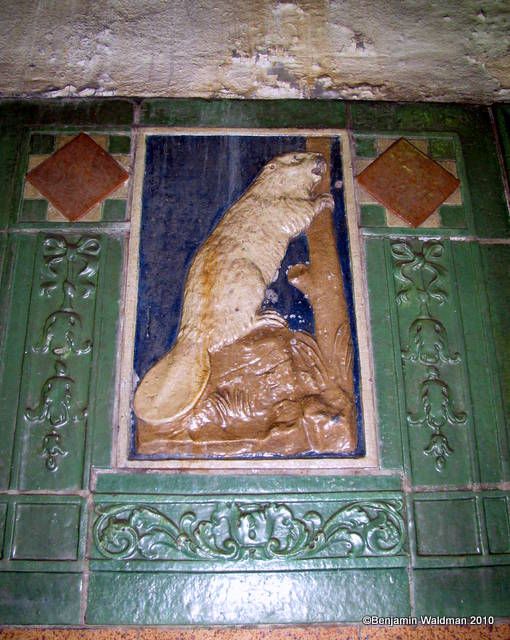
The Astor Place station, named for John Jacob Astor, is adorn with ceramic beavers in honor of the wealthy fur-trader. Above ground, there’s a replica of the cast-iron subway entrances that once adorned every stop on the IRT line.
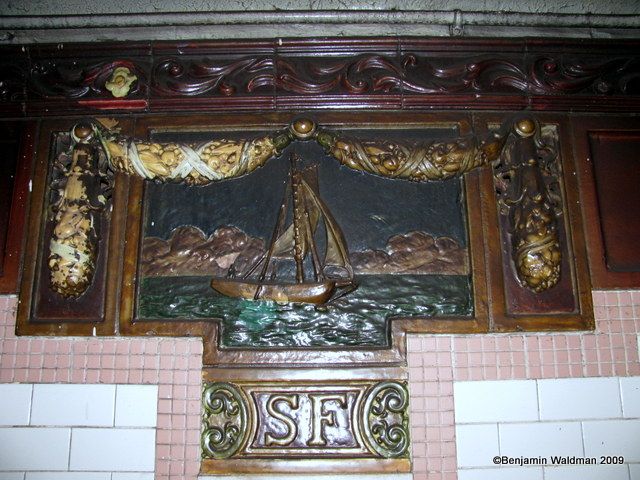
We love this example of subway art as signage. Imagine an early-1900s foreigner in New York–an underground trip could be made easy with the simple instruction to “get off when you see a boat, and you will be at South Ferry.”
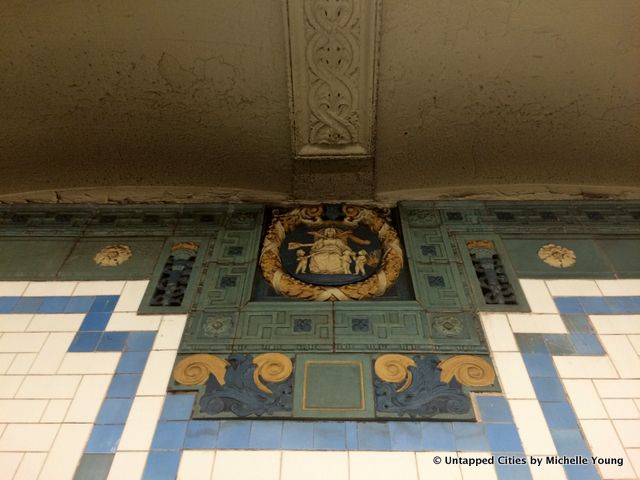
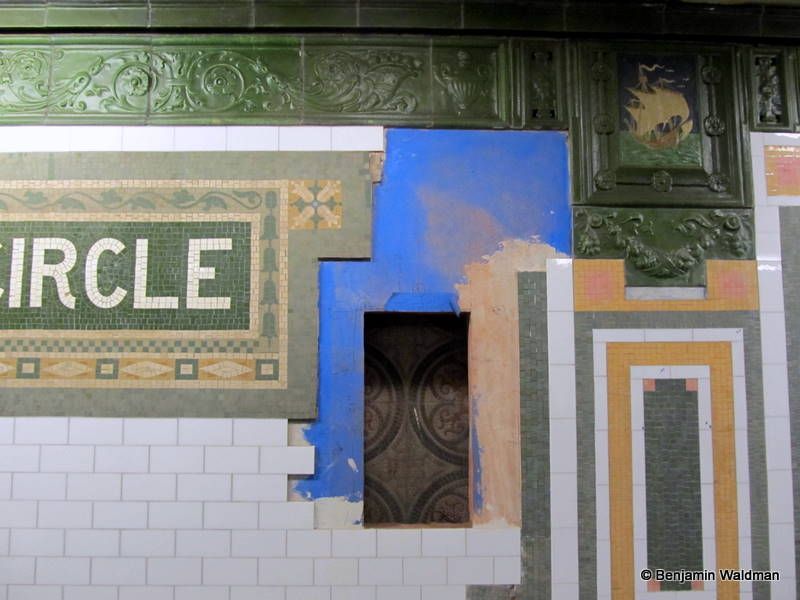
Aside from these great ornamental textual signs, there are also miniature tile images of Christopher Columbus’ ship, easily missed in this busy station. This photograph shows the station while under renovation, when original prototype tiles hidden away for more than a century were discovered. See more of them here.
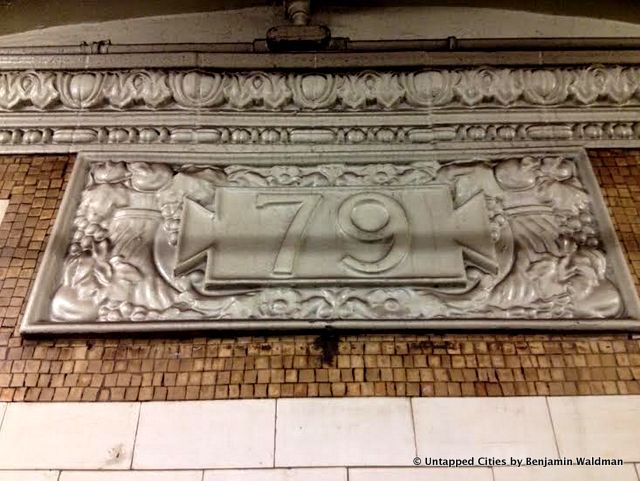
For SubwayNut‘s complete documentation of the often overlooked 79th Street Station, click here.
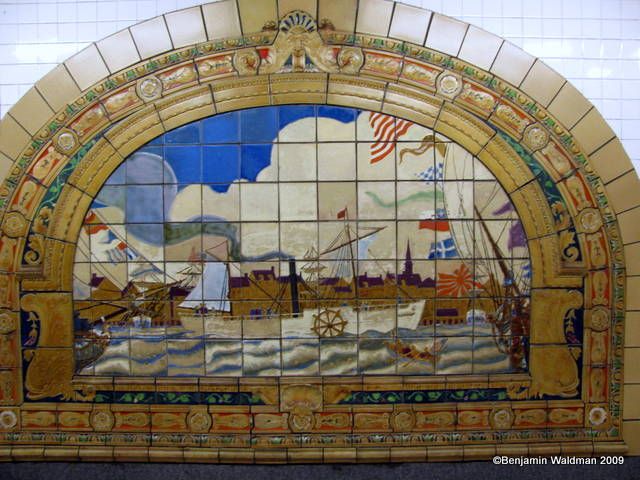
This is only one of the five wonderful tile illustrations at the Fulton Street station but they were actually moved from the McAlpin Hotel and installed at Fulton Street in 1989. Read more about the tiles in our behind-the-scenes at the Fulton Center construction, as well as discover the cast-iron gate also moved from the hotel.
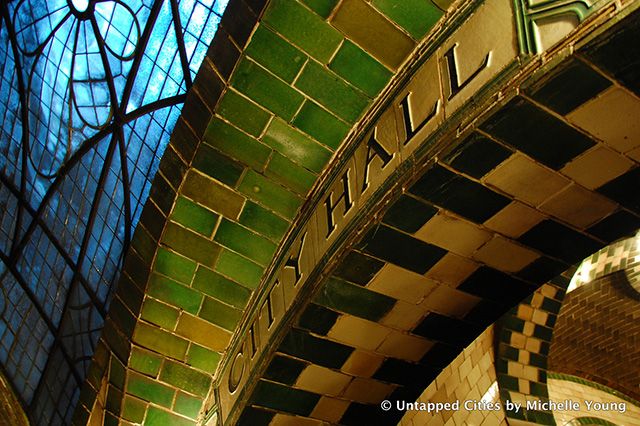
Of course, we didn’t forget the decommissioned City Hall station in Downtown Manhattan. For more photos of the incredible tile work by Guastavino at this hidden gem, see our Touring the Old City Hall Station.
Artist Adam Chang took it upon himself to digitally illustrate every ceramic design at all 118 subway stops in Manhattan. He also includes a fun fact about each sign/station. His virtual tour project is called NY Train Project, which he plans to extend to the outer boroughs in the near future. For more on Adam Chang’s work, see Beautiful Graphics of NY Train Project Celebrates NYC Subway Tile Mosaics. We’re also hosting our first NYC Subway Art walking tour this weekend.
Behind-the-Scenes Tour of NYC Subway Art
To find some of these on subway memorabilia, see our 10 Geeky but Awesome Gifts for NYC Public Transit Buffs.
Subscribe to our newsletter